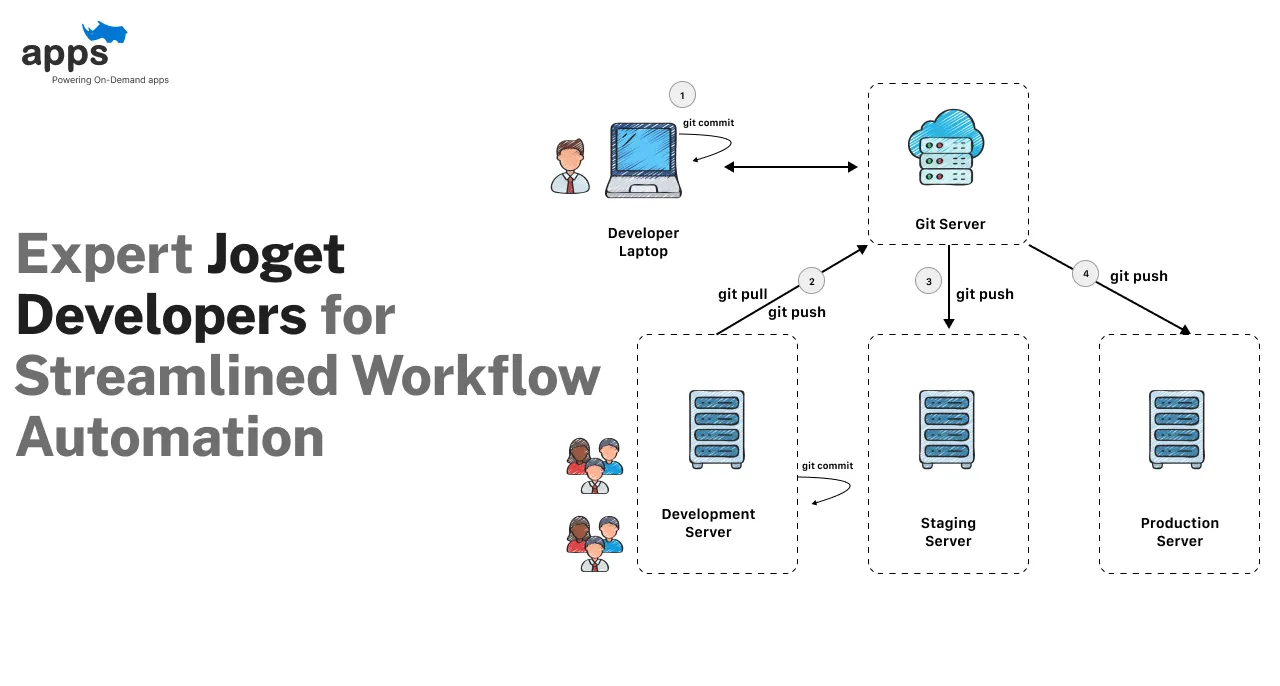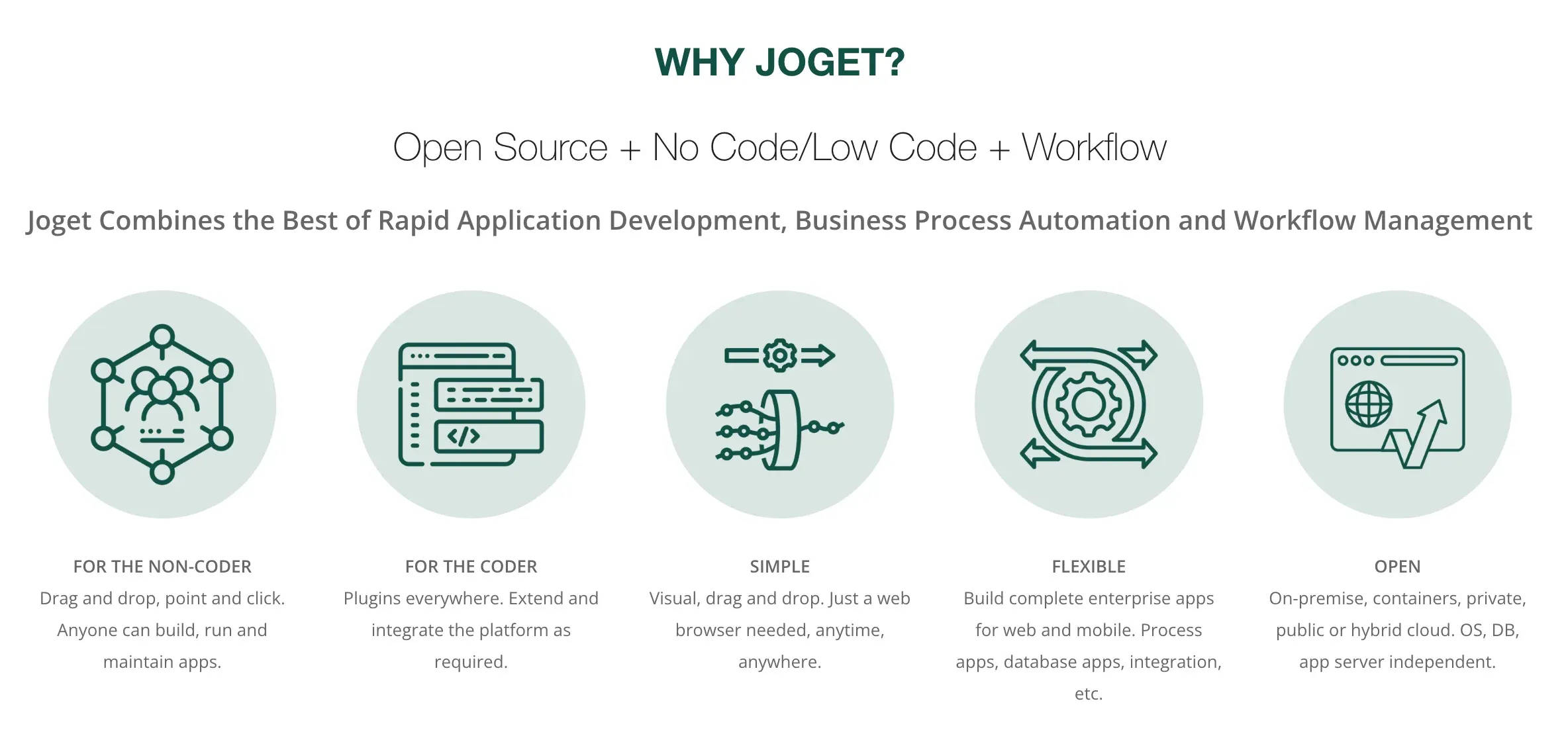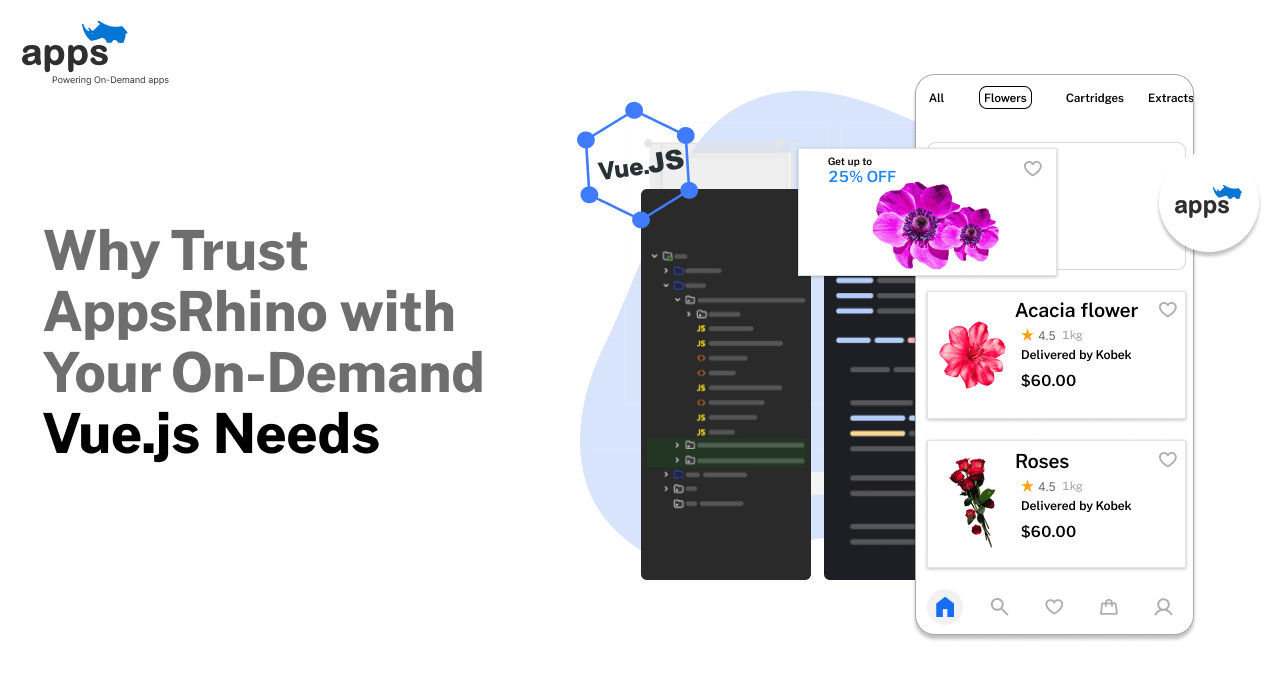- What is Joget?
- Role of Expert Joget Developers
- Benefits of Streamlined Workflow Automation
- Understanding the 5 W's of Streamlined Workflow Automation
- How Joget Developers Streamline Workflow Automation
- Choosing the Right Expert Joget Developer
- Conclusion
- Frequently Asked Questions (FAQs)
Table of Contents
Expert Joget Developers for Streamlined Workflow Automation

The current dynamic business landscape, the demand for streamlined workflow automation has never been more critical.
Business can now enter the sphere of expert Joget developers, who are individuals skilled in harnessing the power of Joget workflow to enhance organizational efficiency.
This versatile framework empowers these developers to craft seamless automation solutions tailored to specific business needs.
Joget developers not only possess a deep understanding of this platform but can also assist businesses in various aspects such as process designing , integration and much more.
A brief overview of this has been mentioned further below, along with a thorough introduction of Joget as a powerful platform for streamlined workflow automation and why this particular platform will most likely best suit your needs.
Embark on a journey with expert Joget developers and unlock the potential for enhanced productivity and efficiency within your business ecosystem.
What is Joget?
Let's have a look into the core concepts of Joget and explore it as a low-code application development platform.

While briefly going through its core features and highlighting its capabilities specifically tailored for workflow automation.
- Visual Interface: Joget incorporates an intuitive and user-friendly visual interface that enables users to build workflows without extensive coding knowledge.
- Drag-and-Drop Functionality: Joget facilitates workflow creation by providing a drag-and-drop functionality, allowing users to easily design and configure their workflows.
- Form Builder: The creation of customized forms for data input and interaction within workflows is simplified by Joget with the help of its built-in form builder tool.
- Integration Capabilities: Joget has the ability to integrate with various systems, databases, and applications, enabling seamless data exchange and workflow orchestration.
- Process Monitoring and Reporting: Joget offers robust monitoring and reporting features, providing real-time visibility into workflow progress, bottlenecks, and performance metrics.
- Collaboration and Approval Workflow: The collaborative features of Joget include task assignments, notifications, and approval processes, which streamline team collaboration and decision-making.
- Mobile-Ready Applications: Joget has the capability to create mobile-responsive applications, allowing users to access and participate in workflows from any device.
Role of Expert Joget Developers

In order to maximize the potential of workflow automation, expert Joget developers are put to use.
Since these developers are fluent in this platform, they can personalize and optimize Joget in accordance with your particular business requirements, such as:
- In-depth Knowledge of Joget: Proficient Joget developers possess extensive knowledge and expertise in leveraging the platform's capabilities to their full potential.
- Workflow Analysis and Design: A thorough analysis of existing workflows is conducted by these developers along with a collaboration with stakeholders to design efficient and effective automated workflows.
- Customization and Configuration: Joget developers can customize and configure Joget according to specific business requirements, ensuring a tailored workflow automation solution.
- Integration Expertise: This set of skilled developers possess the ability to seamlessly integrate Joget with other systems and applications, enabling smooth data exchange and interoperability.
- Optimization for Performance: Joget developers optimize workflows for enhanced performance, focusing on factors such as speed, scalability, and resource utilization.
- User Experience Enhancement: These developers enhance the user experience by designing intuitive interfaces, simplifying navigation, and ensuring a seamless workflow execution.
Suggested Reading:
9 Joget Hurdles Solved for You: Quick Guide
Benefits of Streamlined Workflow Automation

Streamlined workflow automation offers numerous benefits to organizations.
In this section, we will delve into the advantages that businesses can gain by embracing automated workflows. The content will cover the following points:
- Increased Efficiency and Productivity: Automated workflows eliminate manual tasks, reduce delays, and streamline processes, resulting in improved productivity and faster turnaround times.
- Cost Savings and Time Optimization: Workflow automation reduces costs associated with manual labor, errors, and rework. The otherwise time-consuming processes can be streamlined, allowing resources to be allocated to more valuable tasks.
- Improved Accuracy and Reduced Errors: When workflows are automated, there are less chances of human errors and consistency in data handling is ensured leading to improved accuracy and quality of outputs.
- Enhanced Collaboration and Visibility: Workflow automation promotes collaboration by providing a centralized platform for communication, task assignment, and progress tracking. Real-time visibility into workflows enables better decision-making and accountability.
- Scalability and Adaptability: Automated workflows can easily scale to accommodate growing business needs and changes. This also happens because of the flexibility of Joget and its ability to adapt to evolving requirements.
Understanding the 5 W's of Streamlined Workflow Automation
The universal way of assessing the performance of a particular object or framework is by putting them under the 5 W’s and see whether they pass it or not.
Let us analyze the workflow of Joget by putting it under the test of the 5 W’s in the section listed below.
Who can Benefit from Joget Workflow Automation?

Businesses and organizations which are spread across a large extent can benefit from Joget workflow automation.
Whether it's small startups, medium-sized enterprises, or large corporations, any entity that depends on well-organized processes can leverage Joget.
Finance, healthcare, manufacturing, and numerous such industries fall into this category, as Joget is known to deliver significant improvements in efficiency and productivity.
What are the Key Components of a Streamlined Workflow?
Several key components are accountable for a streamlined workflow. It generally includes task assignment, approval processes, data input forms, notifications, and reporting.
Components like these are inspected and described in detail further below with specific emphasis on how Joget's features enable the smooth integration and implementation of these components to create efficient and automated workflows.
Where can Joget be Implemented for Workflow Automation?
Joget can be implemented for workflow automation in a number of areas, such as project management, customer relationship management, human resources, procurement, and more.
Joget, in general, is a diverse platform that can be utilized across various departments and industries.
Suggested Reading:
Joget Overview: Pros, Cons, and Alternatives
When is the Right Time to Consider Joget for Workflow Automation?
There are certain factors that indicate the right time to consider implementing Joget for workflow automation.
This may include increasing process complexity, high volumes of repetitive tasks, a need for faster turnaround times, or a desire to improve overall operational efficiency.
Why Choose Expert Joget Developers for Workflow Automation?
Joget developers not only streamline workflow automation but also bring along a lot of unique and expertise that these professionals bring to the table, such as in-depth knowledge of Joget, the ability to customize and optimize workflows, seamless integration with existing systems, and efficient problem-solving capabilities.
By choosing experienced Joget developers, organizations can ensure successful implementation and maximize the benefits of workflow automation.
How Joget Developers Streamline Workflow Automation
Curious to know how to use Joget Workflow? Joget developers streamline workflow automation by using the platform's visual development tools, pre-built templates, and integrations. Here’s how they achieve this:
Analysis and Planning
Expert Joget developers start by conducting a thorough analysis of existing workflows within an organization.
They collaborate with stakeholders, including process owners and end-users, to understand the current processes, pain points, and optimization opportunities.
This analysis helps in identifying bottlenecks, redundancies, and areas for improvement.
Based on the findings, developers plan the automation strategy. They define the goals, objectives, and scope of the workflow automation project.
They identify the key performance indicators (KPIs) and metrics to measure the success of the automated workflows. This analysis and planning phase ensures a solid foundation for the subsequent stages of development.
Customization and Configuration of Joget Platform
Once the analysis and planning are complete, Joget developers proceed with customizing and configuring the Joget platform to align with the specific business needs.
They utilize the visual interface and drag-and-drop functionality of Joget to design workflow processes, create forms, and define the sequence of tasks.
Developers configure business rules, validation criteria, and decision-making conditions within the workflows. They customize the look and feel of the user interface to enhance the user experience.
Through these customization efforts, Joget developers tailor the platform to meet the unique requirements of the organization's workflows.
Integrating and Connecting Various Systems and Applications
Expert Joget developers excel in integrating Joget with other systems and applications used within the organization.
They establish seamless data connections and enable interoperability between different systems, databases, and third-party applications.
Developers leverage Joget's integration capabilities to fetch and update data from external sources, ensuring a smooth flow of information across the entire workflow.
They create connectors, APIs, and web services to enable data exchange and automate processes that involve multiple systems.

Testing and Deployment of Automated Workflows
Before deploying automated workflows into the production environment, Joget developers conduct rigorous testing to ensure functionality, performance, and accuracy.
They simulate various scenarios, user interactions, and data inputs to validate the workflow behavior and identify any potential issues.
Once testing is successful, the developers deploy the automated workflows to the live environment.
They coordinate with IT teams and system administrators to ensure a smooth deployment process, including configuring access controls, user roles, and permissions.
Continuous Monitoring and Optimization
Joget developers understand that workflow automation is an ongoing process.
They establish monitoring mechanisms to track the performance of automated workflows, identify areas for improvement, and gather valuable insights through analytics.
Based on the monitoring data, developers analyze the workflow performance, identify bottlenecks or inefficiencies, and optimize the workflows accordingly. They make iterative improvements to enhance the efficiency, accuracy, and user experience of automated processes.
By following these steps, Joget developers streamline workflow automation, transforming manual and complex processes into efficient and optimized workflows.
Their expertise ensures the successful implementation, integration, and continuous improvement of automated workflows using the Joget platform.
The leading practices that can be performed to ensure effective workflow automation are:
Mapping and Documenting Existing Workflows
One of the crucial steps in workflow automation is to thoroughly map and document the existing joget workflow systems within an organization.
This involves analyzing the current processes, documenting the steps involved, and identifying pain points and areas for improvement.
By mapping the workflows, organizations gain a clear understanding of the current state and can effectively identify opportunities for automation.
Suggested Reading:
Hire dedicated joget developers with AppsRhino: Here's how
Identifying Automation Opportunities and Prioritizing Workflows
Once the existing workflows are mapped, it is important to identify which workflows can benefit the most from automation.
Organizations should prioritize workflows based on criteria such as complexity, volume, and impact on efficiency and productivity.
By focusing on workflows that have the highest potential for improvement, organizations can maximize the benefits of automation and achieve quick wins.
Involving Stakeholders and End-Users in the Automation Process
To ensure the success of workflow automation, it is crucial to involve stakeholders and end-users throughout the entire automation process.
This includes consulting with process owners, managers, and employees who are directly involved in the workflows.
By actively engaging stakeholders, organizations can gather valuable insights, ensure buy-in, and address any concerns or resistance to change.
End-users' input is vital for designing user-friendly interfaces and optimizing automation to meet their specific needs.
Ensuring Scalability and Flexibility in Workflow Design
When designing automated workflows, it is important to consider scalability and flexibility. Organizations should anticipate future growth and changing business requirements.
The joget workflow systems should be designed to accommodate increasing volumes of work and adapt to evolving processes.
This includes considering factors such as data handling, system integrations, and accommodating new process variations. Scalable and flexible workflow designs ensure that the automation remains effective and can be easily adjusted as the organization evolves.
By following these best practices, organizations can ensure the effectiveness and success of their workflow automation initiatives.
Mapping and documenting workflows, prioritizing automation opportunities, involving stakeholders, and designing scalable and flexible workflows lay the foundation for streamlined and efficient automated processes.
Choosing the Right Expert Joget Developer

Selecting the right Joget development partner is crucial for the success of workflow automation projects.
This section will discuss the factors to consider when choosing an expert Joget developer or development team. It will highlight the following points:
Expertise and Knowledge
Emphasize the importance of evaluating the developer's expertise in Joget and their understanding of workflow automation principles.
Look for developers who have deep knowledge of the Joget platform, its features, and its best practices.
Experience and Track Record
Consider the developer's experience in implementing Joget workflow automation projects. Look for a track record of successful implementations, preferably in similar industries or use cases.
A developer with hands-on experience is more likely to deliver effective solutions.
Collaboration and Communication Skills
Consider the developer's ability to collaborate effectively with your team and communicate clearly.
Strong collaboration and communication skills ensure a smooth project workflow, efficient problem-solving, and timely updates on progress.
Portfolio and Case Studies
Assess the developer's portfolio and case studies to understand their previous work. Look for evidence of their ability to customize Joget, integrate with other systems, and deliver optimized workflows.
A strong portfolio indicates their capability to meet your specific requirements.
Client References and Testimonials

Request client references or testimonials from past projects. Reach out to their previous clients to gather feedback on their performance, professionalism, and the results they achieved.
This helps validate the developer's credibility and reliability.
Conclusion
The conclusion section will provide final thoughts on the future of workflow automation with Joget.
It may touch upon the growing importance of automation in business processes, the increasing adoption of low-code platforms like Joget, and the potential benefits organizations can achieve through streamlined joget workflow systems.
It will highlight how choosing the right expert hire experienced joget developers is critical in harnessing the full potential of Joget for workflow automation.
The conclusion may also reiterate the key points discussed throughout the blog and leave readers with a positive outlook on the future of workflow automation with Joget.
Frequently Asked Questions (FAQs)
What is Joget and how can it streamline workflow automation?
Joget is an open-source platform that enables business users and developers to build web applications and automate workflows.
It simplifies the process of creating and managing joget workflow systems, allowing for streamlined automation and increased efficiency in various business processes.
Why should I consider hiring expert Joget developers for workflow automation?
Hiring expert Joget developers can be beneficial as they possess specialized skills and expertise in developing customized workflows using the platform.
They can efficiently analyze your organization's requirements, design and implement tailored automation solutions, and provide ongoing support and maintenance, ensuring a smooth workflow automation experience.
What are the potential benefits of using Joget for workflow automation?
By using Joget for workflow automation, businesses can benefit from improved efficiency, reduced manual errors, increased productivity, enhanced collaboration, streamlined processes, faster response times, greater transparency, and cost savings through time and resource optimization.
How can expert Joget developers customize workflow automation solutions for my business?
Expert Joget developers can understand your specific business requirements and tailor the workflow automation solutions accordingly.
They can customize workflows, create forms and data integration points, develop plugins and extensions, enable integrations with other systems, and implement business rules and logic to ensure the automation system meets your unique needs.
What support can I expect from Joget experts after workflow automation is implemented?
After workflow automation implementation, expert Joget developers can provide ongoing support and maintenance services.
This includes troubleshooting any issues, fine-tuning and optimizing joget workflows, addressing user queries, and implementing updates or enhancements as needed.
How do I ensure data security and privacy when using Joget for workflow automation?
To ensure data security and privacy, expert Joget developers can implement appropriate security measures within the workflow automation system.
This includes secure user authentication, role-based access control, data encryption, and compliance with regulations such as GDPR and HIPAA.
Table of Contents
- What is Joget?
- Role of Expert Joget Developers
- Benefits of Streamlined Workflow Automation
- Understanding the 5 W's of Streamlined Workflow Automation
- How Joget Developers Streamline Workflow Automation
- Choosing the Right Expert Joget Developer
- Conclusion
- Frequently Asked Questions (FAQs)



